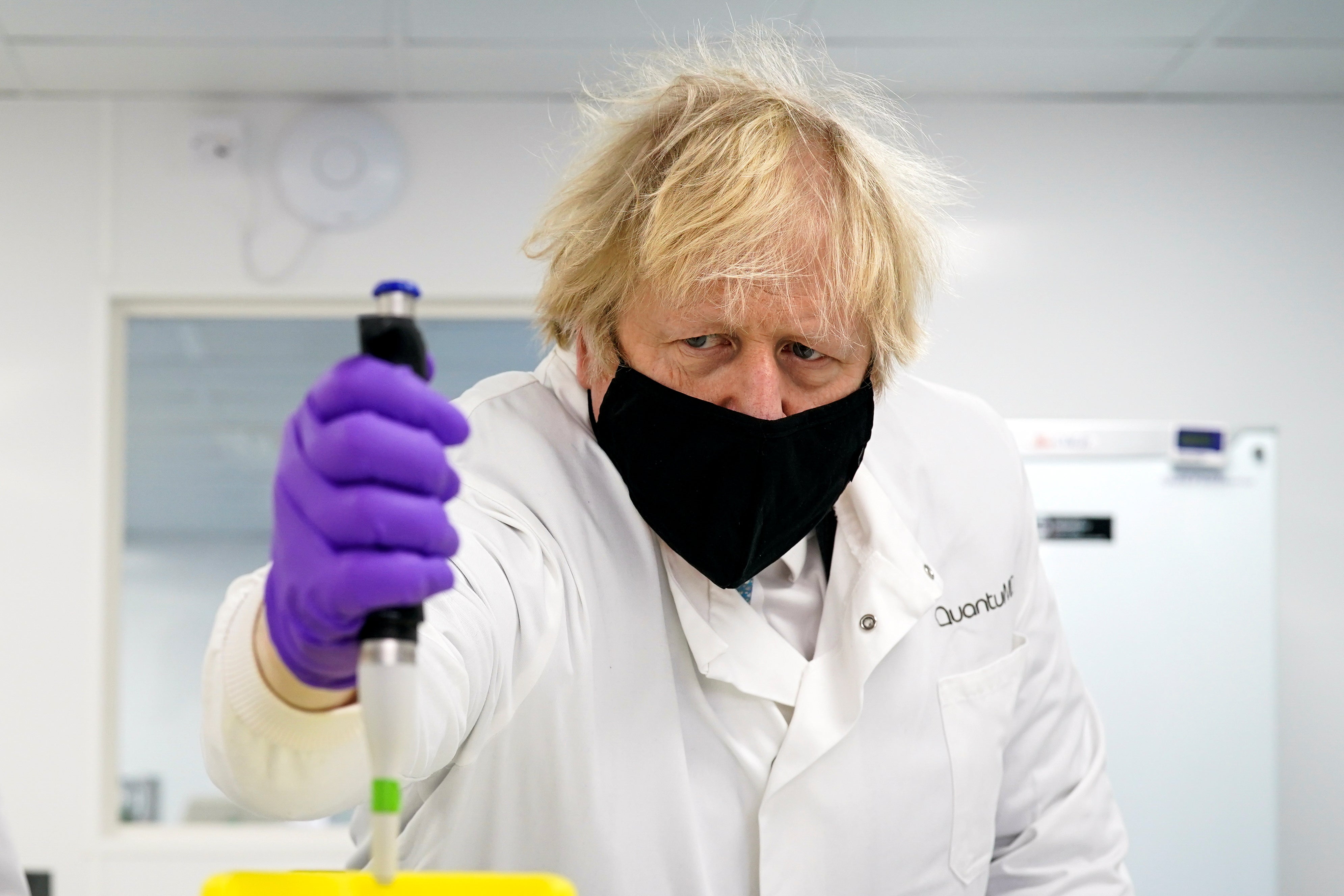Now it’s time for Boris Johnson to prepare for the next pandemic
Editorial: Scientists say the government must not forget about future threats

The prime minister has said that there will be a public inquiry into the UK’s coronavirus response, but too little thought has been given to the form it might take. Understandably, much of the focus from outside Downing Street has been on holding Boris Johnson’s government to account for its apparent failings over the past year and more.
That must happen, but what is more important is that we learn the right lessons so that we are prepared for the next pandemic. That is the message from a number of leading scientists who spoke to The Independent.
“Memories are short-lived,” said Professor Peter Horby, chair of the government’s New and Emerging Respiratory Virus Threats Advisory Group (Nervtag). Professor Sarah Gilbert, whose team developed the Oxford vaccine, said it was vital to listen to pandemic warnings “and prepare for the next one”. Professor Sir Mark Walport, the former chief scientific adviser to the government, warned against the tendency “to focus on the last disaster and not think about the next one”.
That means looking forward as well as back, and it means looking sideways to the rest of Europe, where a new wave of the virus is threatening not just people’s holiday plans but the British government’s timetable for unlocking restrictions. The experts we consulted all spoke of the need for continued vigilance even as the UK appears to be turning the corner in controlling the virus. They spoke of a new world in which test and trace will be a permanent feature, and international travel subject to new constraints.
Read more:
That said, most of the scientists continue to think that we will learn to live with the coronavirus; that it will be possible to manage it, and new variants of it, with an annual vaccination programme that stays ahead of changes in the virus.
What will be more difficult in the post-crisis new world will be preparing for the next pandemic. That involves wrestling with what “preparedness” means. In many ways, most rich countries were well prepared for a pandemic that they assumed would be like influenza – although there are obviously questions to be asked about the state of stocks of personal protective equipment. And the initial responses to the coronavirus were based on plans devised for flu, which may have hindered the kind of agile thinking that was needed in order to adapt.
One of the big lessons of the coronavirus crisis is that it is never too early to question assumptions and consider unprecedented action. The prime minister ought to consider, therefore, convening the best scientific minds to apply themselves to planning for the next pandemic. This could be a first stage of the promised public inquiry, but focused entirely on pandemic preparedness.
That would make it politically more acceptable to the government, because it could defer the more sensitive scrutiny of its own actions until later. But the urgent priority now is to engage in fresh thinking about one of the hardest things in science, as in politics: how to prepare for the unknown.
Join our commenting forum
Join thought-provoking conversations, follow other Independent readers and see their replies
Comments
Bookmark popover
Removed from bookmarks